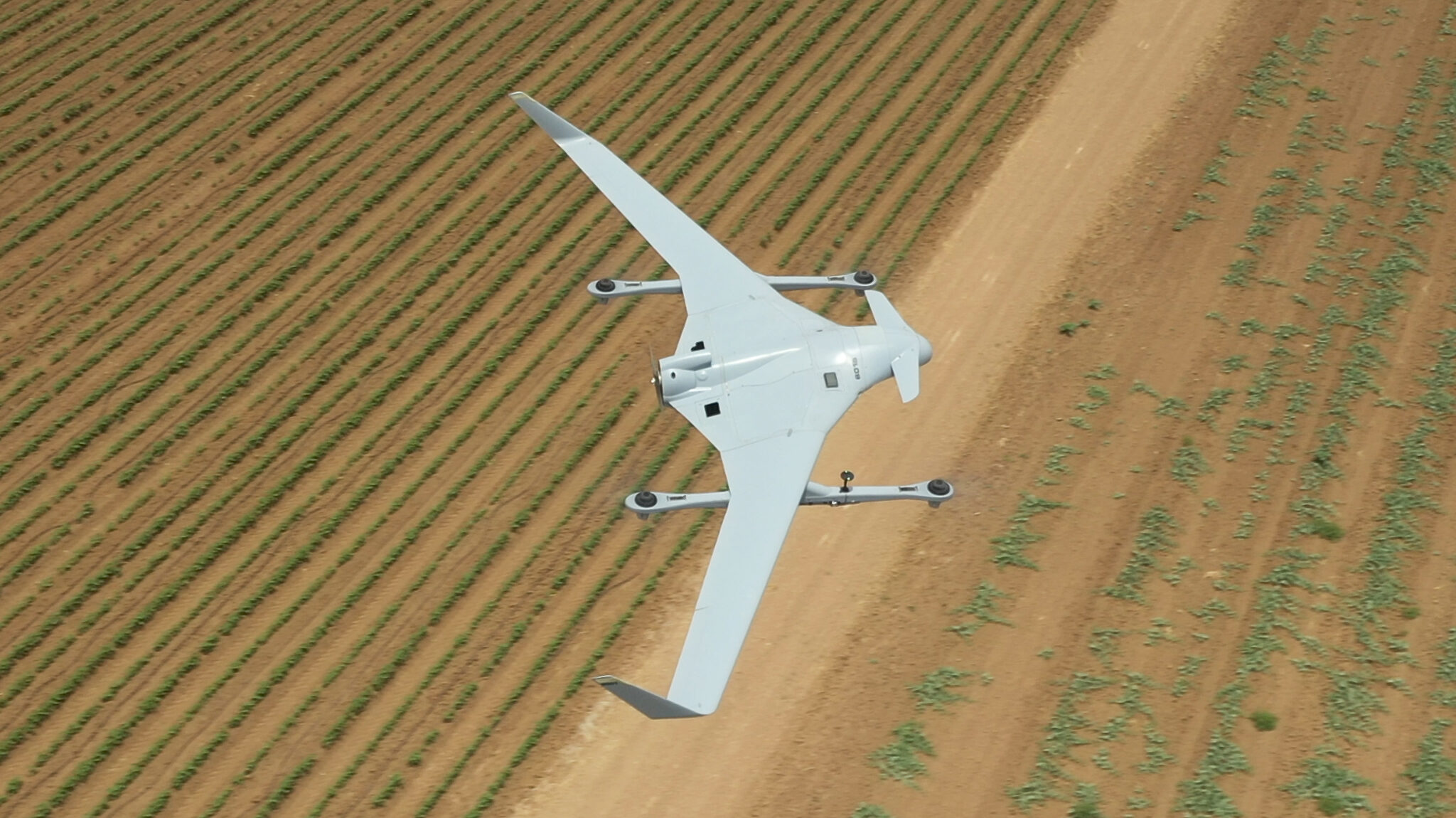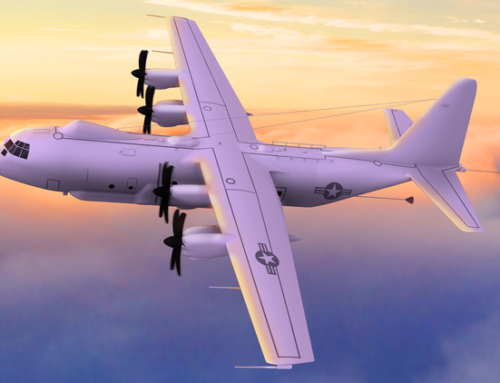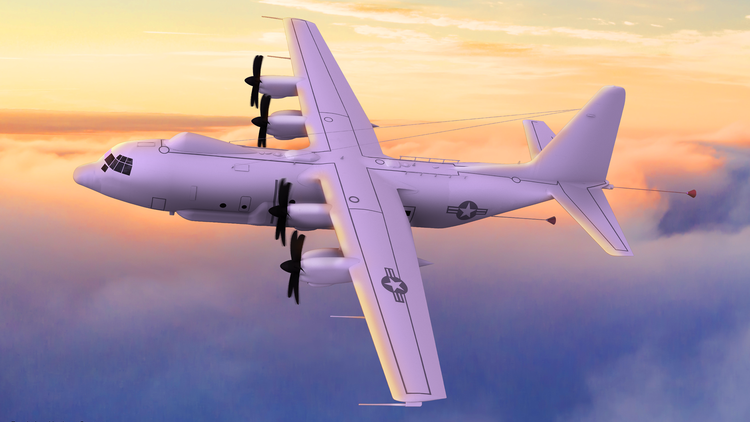
An Orbiter 4 UAV from Israel’s Aeronautics takes flight. (Aeronautics)
JERUSALEM — As militaries the world over race to embrace drone warfare, the head of the Israeli defense firm Aeronautics told Breaking Defense the market is only growing for tactical unmanned aerial vehicles (UAVs) that are bigger and more capable than most quadcopters, but smaller and much more affordable than large, long-range systems.
“We are living in interesting times. A lot of the systems we have are called to duty and are active in all aspects of the modern war theatre, locally and around the world,” Aeronautics CEO Dan Slasky said in an interview. “We see this in the Middle East and Ukraine.”
Slasky said those conflicts have also shown, however, that being “cost effective” is not enough. Increasingly the drones need to be hardened against electronic warfare attacks and must carry a wide range of sensors for different missions. Interest is also growing in platforms with the vertical takeoff capability.
“There are many types from quadcopters to small UAVs out there. However the ones that survive and are effective are the ones that are specially designed to survive and excel in the modern battlefield,” Slasky said. “[In] the dollar-to-mission ratio, [it] is more cost effective to have a system that is robust and can withstand jamming or counter measures.”
As for payloads, Slasky said he’s seen a high level of interest in drones that carry synthetic aperture radar (SAR) tech — enhancing surveillance missions by being able to “see” through clouds and some foliage.
“We have integrated SAR radar on our systems, which brings enhanced ISR, all-weather, additional agility, real time comms and response,” he said.
Once drones are packed with payloads and have gotten to a new level in terms of flight time and cost, Slasky said a third innovation is adding vertical takeoff and landing (VTOL) capabilities. The movement of drones into VTOL is something other companies have been focused on as well. For instance, in October Israel Aerospace Industries (IAI) unveiled a new APUS line of VTOL quadcopters that it developed in partnership with Aerotor.
“There has been a big pull in army- and navy-related missions with the needs of precision landing. We’ve defined this as a strategic vector,” Slasky said.
Aeronautics, a subsidiary of Rafael Advanced Defense Systems, is the maker of the Orbiter family of tactical UAVs, from the 29-pound Orbiter 1K to the Orbiter 5, which has a max take-off weight of 165 pounds. It’s this latest version, unveiled at a defense show in Paris in 2023, that Slasky says should be able to compete with much larger, more expensive airframes that are more vulnerable to air defenses. (The company equipped the Orbiter 3 and 4 with VTOL capabilities.)
Slasky claimed Orbiter 5 could take on as much as “80 percent” as those more traditional medium-altitude, long-endurance (MALE) systems. The Aeronautics system is already active in operations and is “successfully performing roles that also were traditionally handled by larger MALE systems and across multiple dimensions,” he said.
Aeronautics is hardly alone in attempting to capture the tactical unmanned munition market, going up against products made by Rafael’s competitors at major Israeli firms like IAI and a host of international and American companies.
RELATED: Meet Anduril’s new loitering munitions, the firm’s first (but not last) weapons program
Aeronautics doesn’t disclose the cost and recent customers, which is typical of Israeli defense companies. A previous report indicated that Croatia had acquired six of the Orbiter 3 drones for $5.7 million, and Finland had acquired up to 180 drones for $31 million. Cost breakdowns are complex because contracts include many other aspects than just the drone itself, including the payloads and launchers and other details.
Slasky said Israeli firms have a leg up on some of their competition because many of their systems have been used in combat.
“There are a lot of UAV companies out there but not many have proven and positive feed-back from the battlefield,” he said.
While the drone market may be ripe, Slasky acknowledged some recent challenges, including France’s decision to ban Israeli firms from major defense shows — a loss of a major business opportunity.
“I don’t know how to gauge what the impact was on us with the cancellation. We had a whole line up of meetings set up and customers wanted to meet us,” he said.










